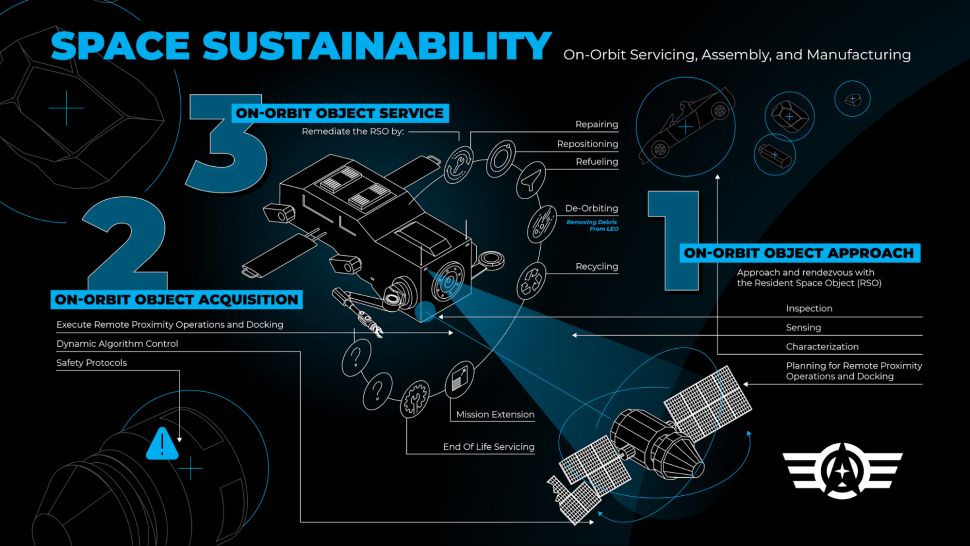
While there are well over 20,000 trackable pieces of space debris, what also concerns the Space Force is the number of smaller objects (such as screws or flecks of paint) that would not be able to be tracked.
Industry representatives have more generally pointed to the rise of large-scale satellite constellations as another potential threat in mitigating space debris, as SpaceX’s Starlink constellation alone has produced several near-misses in recent months.
“Our goal through Orbital Prime,” Thompson said, “is to partner with innovative minds in industry, academia and research institutions to advance and apply state of the art technology and operating concepts in the areas of debris mitigation and removal.”
Comment: I have been fascinated of late with surveys that indicate that a large number of Americans do not grasp the fact that the Space Force is a real and growing part of the armed forces. pl
https://www.space.com/space-force-space-debris-orbital-prime-plan

I live very near the Patrick SFB, formerly the AFB, which did not really have much of a military mission, but now they do. When you are on the base, you can tell that it is a different place. You can even see the extended co-operation with the Cape and other assets in the area. Now, if they can just get the cruise ships to not impede rocket launches, we will all be happier.
Spaceforce is the most exciting thing happening in USA, and the best long-term potential for planetary cooperation – asteroids and comets, deflection and resources – and for education. But that isn’t where the rest of the elite seem to be going. Has there been a discussion here about the firing of one of the most capable leaders available, Matthew Lohmeier?
coboarts,
Don’t you realize that Space Force is a US military service? It’s not here to further planetary cooperation. It’s here to defend US interests. NASA has the best long-term potential for planetary cooperation along with the space agencies of other countries.